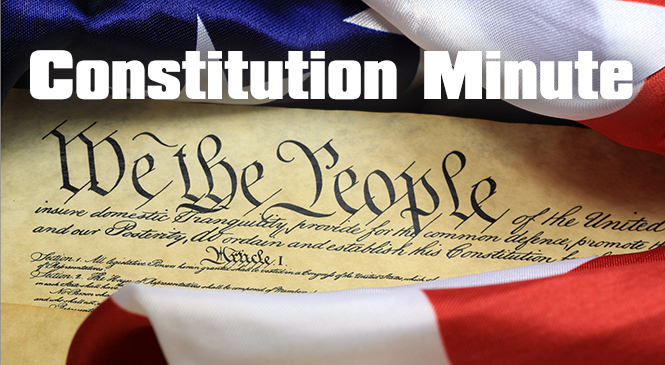The (long) week that was.

For those old enough to remember (Joe Biden would be an example – if he could remember) there was a TV show hosted by British writer, journalist and comedian David Frost called, “That Was the Week that Was.” It was a political satire show that began on the BBC in Britain and then came to the United States, airing on the NBC Television Network for two seasons starting in 1964. The lyric to the theme included the line, “That was the week that was, it’s over, let it go…”
I am going to vigorously assert that I was (much) too young to appreciate the show but I remember that my parents liked it.
“That Was the Week That Was” comes to mind as I consider the long week that began on the evening of Saturday, July 13, the night before I departed for Milwaukee and the Republican National Convention. Just minutes into his speech at a rally in Butler, Pennsylvania, former president Donald Trump was nicked on the right ear by a bullet fired from an AR-15 rifle. Had he not turned his head at that precise moment, he would have been killed. It was a story-of-the-decade-level news event.
Two days later, the Republican convention began. It was an extraordinary convention in the sense that the Republican Party found itself in the unaccustomed position of being united. Unlike most Republican conventions, there were no seething platform squabbles. Unlike the 2016 convention (there was no convention in the normal sense in 2020 due to COVID), there was unanimity regarding the nominee.
Trump’s nomination in 2016 you’ll recall almost set off a civil war in the GOP. Ted Cruz famously refused to endorse him from the podium on Tuesday night of that convention – a shocking breach of political convention etiquette that got Cruz booed off the stage.
But at the convention in Milwaukee, Trump, sporting a bandaged ear, triumphantly took the stage as the clear and dominant leader of a fully united Republican Party. He became the only Republican to be nominated by the party three times in a row.
As the GOP was gathering in Milwaukee – against a backdrop of increasingly favorable poll numbers – President Joe Biden went into isolation with COVID.
Even as Republicans were celebrating the candidacy of Donald Trump, the long knives were coming out for a visibly feeble Joe Biden. Party leaders that included Nancy Pelosi, along with formerly friendly media outlets such as the New York Times, were calling for Biden to withdraw from the race. The about face of the Times touched off a stampede of media defections from the Biden cause.
Biden finally caved on Sunday, July 21. No sitting president eligible for re-election has ever withdrawn so late in an election year. A beleaguered Lyndon Johnson threw in the towel in March of 1968. Harry Truman withdrew in March of 1952.
Nine days – July 13 through the 21st. Nine days that changed the course of American political history. Call it a long week – the long week that was.









